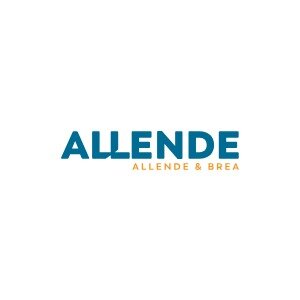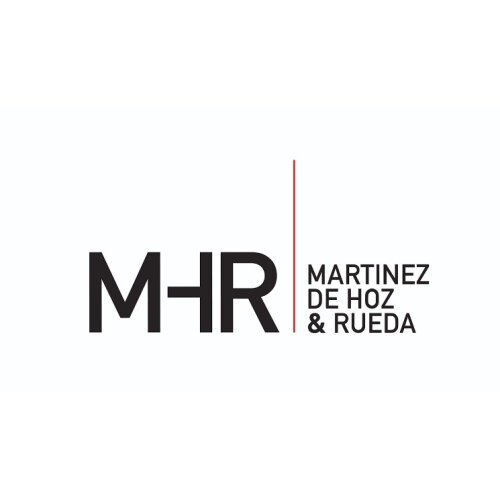Best Reinsurance Lawyers in Argentina
Share your needs with us, get contacted by law firms.
Free. Takes 2 min.
Or refine your search by selecting a city:
List of the best lawyers in Argentina
About Reinsurance Law in Argentina
Reinsurance in Argentina is a specialized sector within the insurance industry that involves transferring portions of risk portfolios from one insurer to another. This practice is crucial in balancing insurance markets, ensuring financial stability, and mitigating risks associated with significant losses. The National Insurance Superintendency (SSN), a regulatory body, oversees reinsurance operations, ensuring compliance with local laws and regulations.
Why You May Need a Lawyer
Several circumstances may necessitate seeking legal advice in the field of reinsurance:
- Disputes over reinsurance policy clauses and terms.
- Negotiation of reinsurance contracts to ensure favorable conditions.
- Compliance with Argentinian reinsurance regulations and standards.
- Handling claims effectively, especially complex or large-scale ones.
- Assistance in reinsurance arbitration and litigation processes.
Local Laws Overview
In Argentina, reinsurance is governed by various laws and regulatory frameworks that are essential for maintaining industry standards. A few key aspects include:
- Regulations set by the National Insurance Superintendency (SSN), which establish how reinsurance companies can operate.
- Capital requirements and solvency margins that reinsurers must maintain to protect against financial instability.
- Licensing prerequisites for native and foreign reinsurers to partake in the Argentinian market.
- Specific reporting and documentation obligations ensuring transparency and accountability.
Frequently Asked Questions
What is the main purpose of reinsurance?
Reinsurance allows insurance companies to manage risk efficiently by transferring portions of their risk to another insurer, thus protecting against significant financial losses.
Who regulates the reinsurance market in Argentina?
The National Insurance Superintendency (SSN) is the primary regulatory body overseeing the reinsurance market in Argentina.
Is it necessary for a reinsurance company to be licensed to operate in Argentina?
Yes, both local and foreign reinsurance companies must obtain the necessary licenses from the SSN to operate in Argentina.
Can reinsurance contracts be negotiated?
Yes, reinsurance contracts are typically negotiated agreements, and having a lawyer can ensure terms are favorable and comply with the law.
What happens when there is a dispute over a reinsurance agreement?
Legal assistance may be required to resolve disputes through negotiation, arbitration, or litigation to protect your interests.
Are there any specific compliance requirements for reinsurers in Argentina?
Reinsurers must adhere to local and international regulations regarding solvency, capital requirements, and regular reporting as mandated by the SSN.
How are claims handled in reinsurance?
Claims are typically managed according to the terms set in the reinsurance contract, where legal advice can help navigate complexities and ensure a fair process.
What is the role of an intermediary in reinsurance?
An intermediary helps facilitate reinsurance transactions by connecting insurers and reinsurers, often providing advisory services during negotiations.
Can foreign entities provide reinsurance in Argentina?
Foreign entities are allowed to provide reinsurance in Argentina but must comply with licensing and regulatory requirements set by the SSN.
What are the main challenges in the reinsurance market in Argentina?
Challenges include stringent regulatory requirements, market volatility, and the complexities involved in international reinsurance transactions.
Additional Resources
For those seeking further information or assistance in the field of reinsurance in Argentina, consider contacting the following resources:
- The National Insurance Superintendency (SSN) for regulation guidelines and compliance requirements.
- The Argentinian Association of Insurance Companies for industry standards and networking opportunities.
- Local legal firms specialized in insurance and reinsurance law for personalized legal advice.
Next Steps
If you require legal assistance in reinsurance, consider the following steps:
- Assess your situation to understand the specific legal needs and areas of concern.
- Compile all relevant documentation related to your reinsurance agreements and disputes.
- Research and contact a specialized attorney with experience in Argentinian reinsurance law.
- Schedule a consultation to discuss your case, explore your options, and develop a legal strategy.
- Stay informed about any changes in reinsurance laws that might affect your case.
Lawzana helps you find the best lawyers and law firms in Argentina through a curated and pre-screened list of qualified legal professionals. Our platform offers rankings and detailed profiles of attorneys and law firms, allowing you to compare based on practice areas, including Reinsurance, experience, and client feedback.
Each profile includes a description of the firm's areas of practice, client reviews, team members and partners, year of establishment, spoken languages, office locations, contact information, social media presence, and any published articles or resources. Most firms on our platform speak English and are experienced in both local and international legal matters.
Get a quote from top-rated law firms in Argentina — quickly, securely, and without unnecessary hassle.
Disclaimer:
The information provided on this page is for general informational purposes only and does not constitute legal advice. While we strive to ensure the accuracy and relevance of the content, legal information may change over time, and interpretations of the law can vary. You should always consult with a qualified legal professional for advice specific to your situation.
We disclaim all liability for actions taken or not taken based on the content of this page. If you believe any information is incorrect or outdated, please contact us, and we will review and update it where appropriate.
Browse reinsurance law firms by city in Argentina
Refine your search by selecting a city.















